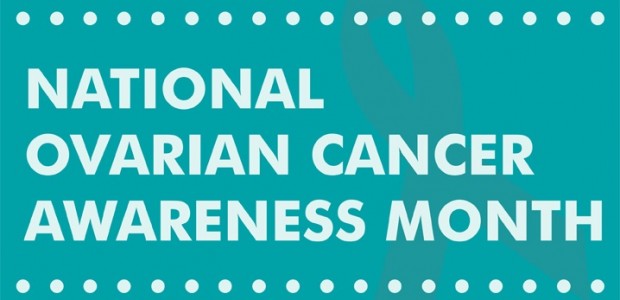Ovarian cancer occurs when cancerous, abnormal cells spread on the ovaries, killing off healthy cells.
Did you know Ovarian Cancer is one of the deadliest forms of cancer? A major cause of this cancer’s high fatality rate is the difficulty in detecting it. However, If ovarian cancer is found in its early stages, women have a 93% survival rate!
Ovarian Cancer Signs & Symptoms
The signs of ovarian cancer are extremely subtle and difficult to diagnose:
- Bloating
- Pelvic or Abdominal pain
- Difficulty eating or feeling full quickly
- Urinary urgency or frequency
- Nausea, indigestion, gas, constipation or diarrhea
- Extreme fatigue
- Shortness of breath
- Backaches
If these symptoms persist for more than 2 to 3 weeks, then you should see your doctor. Remember, if something truly doesn’t feel right, you are your best advocate. Speak up.
Diagnosing Ovarian Cancer
To diagnose these symptoms as evidential of ovarian cancer, your doctor will perform the following tests:
- Physical examination. He or she will feel for tenderness in the abdominal area.
- Pelvic examination
- CA-125 Blood test. CA-125 cells are present on top of ovarian cancer cells.
- Ultrasound
- Biopsy
Ovarian Cancer Stages
The stages of ovarian cancer vary on how much the cancer has spread.
- Stage I: Cancer is centrally contained within the ovary or ovaries. It has not spread.
- Stage II: Cancer is present in one or both of the ovaries and has spread to additional organs (ie. bladder, colon, rectum or uterus).
- Stage III: Cancer is in one or both ovaries and has spread to one or both of the following: the abdomen lining or the lymph nodes.
- Stage IV: This is the most advanced stage. Cancer has spread from one or both ovaries to additional organs such as the liver or lungs. There may also be cancer cells in the fluid surrounding the lungs.
- Recurrent: After a successful first treatment of ovarian cancer, the cancer has returned.
Risk Factors
- Family history of breast or ovarian cancer
- Personal history of cancer
- Women over the age of 55
- Women who were never pregnant
- Women on menopausal hormone replacement therapy
Some experts suggest that maintaining a healthy diet full of vegetables, soy, and whole grains reduces the severity of ovarian cancer, if diagnosed.
Do you know anyone who has had ovarian cancer? Let us know in the comments!
For more information, check out the Ovarian Cancer National Alliance.

